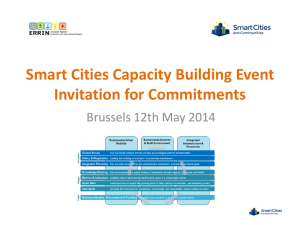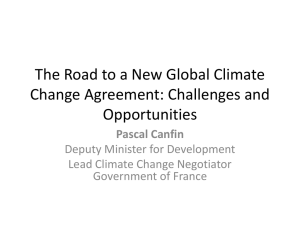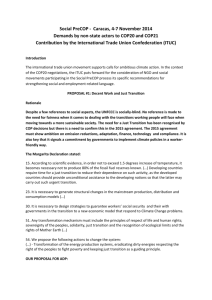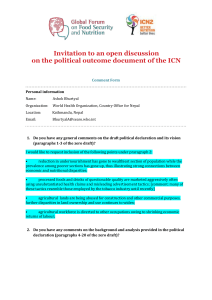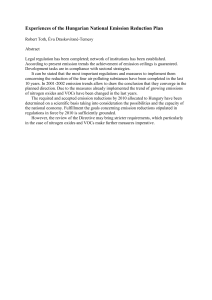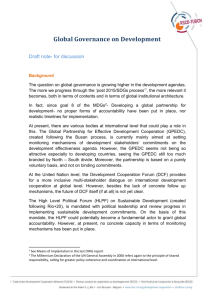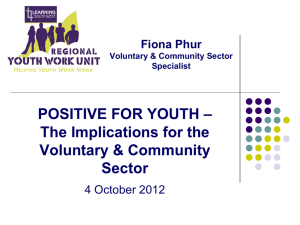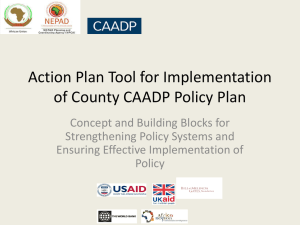COP20_ITUCasks_draft-TUED-amendment-
advertisement
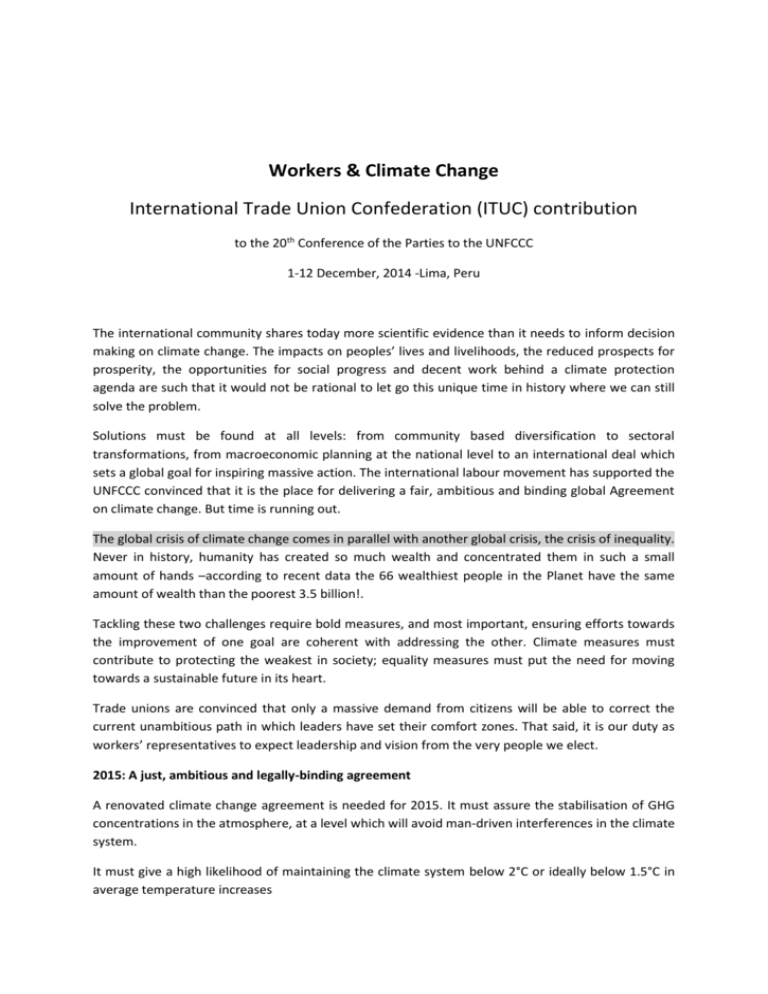
Workers & Climate Change International Trade Union Confederation (ITUC) contribution to the 20th Conference of the Parties to the UNFCCC 1-12 December, 2014 -Lima, Peru The international community shares today more scientific evidence than it needs to inform decision making on climate change. The impacts on peoples’ lives and livelihoods, the reduced prospects for prosperity, the opportunities for social progress and decent work behind a climate protection agenda are such that it would not be rational to let go this unique time in history where we can still solve the problem. Solutions must be found at all levels: from community based diversification to sectoral transformations, from macroeconomic planning at the national level to an international deal which sets a global goal for inspiring massive action. The international labour movement has supported the UNFCCC convinced that it is the place for delivering a fair, ambitious and binding global Agreement on climate change. But time is running out. The global crisis of climate change comes in parallel with another global crisis, the crisis of inequality. Never in history, humanity has created so much wealth and concentrated them in such a small amount of hands –according to recent data the 66 wealthiest people in the Planet have the same amount of wealth than the poorest 3.5 billion!. Tackling these two challenges require bold measures, and most important, ensuring efforts towards the improvement of one goal are coherent with addressing the other. Climate measures must contribute to protecting the weakest in society; equality measures must put the need for moving towards a sustainable future in its heart. Trade unions are convinced that only a massive demand from citizens will be able to correct the current unambitious path in which leaders have set their comfort zones. That said, it is our duty as workers’ representatives to expect leadership and vision from the very people we elect. 2015: A just, ambitious and legally-binding agreement A renovated climate change agreement is needed for 2015. It must assure the stabilisation of GHG concentrations in the atmosphere, at a level which will avoid man-driven interferences in the climate system. It must give a high likelihood of maintaining the climate system below 2°C or ideally below 1.5°C in average temperature increases The next agreement must include contributions in the form of targets, commitments and actions within a framework that provides sufficient support to countries with low capacity and ensures sustained and predictable funding for those particularly vulnerable to the impacts of climate change. It should also develop strong rules including on accounting and compliance. Lima negotiations, which will lead to the Paris COP are not about negotiating a full new climate regime, but to complement and strengthen the structure provided by the UNFCCC. They are also about filling the gaps of the Convention when it comes to the linkages between climate action and the world of work. A renovated framework for climate action will have to be informed by science, based on equity, be environmentally effective and ensure broad participation of all countries, while respecting their different responsibilities and capacities. It will have to provide clarity on emission reduction objectives, adaptation, support (financial, technological and human), strengthen its commitment to Just Transition and develop common rules. Trade unions consider fundamental that Just Transition: The new UN agreement honours the commitment made by Parties in COP17 on the importance of ensuring a “Just Transition which will create decent work and good quality jobs in the transition towards a low emission and climate-resilient society” A strong message to the working people is key to show government’s commitment to fight climate change in a socially-sound manner. We suggest the following wording: Parties commit to accompany their climate policies and actions with the promotion of decent work opportunities arising from a low-emission society as well as with a strategy aimed at ensuring a Just Transition for workers, contributing to protecting them in times of hardship, strengthening social dialogue, securing their rights, growing new sectors and promoting prosperity and sustainable development. Parties should support the introduction of this commitment in the section of the ADP draft negotiating text that confirms the commitment to 2°C. In doing so it gives a signal to all Parties on how to implement their climate policies in a worker-friendly way. In preparing their “contributions” for the post2020 period, governments are encouraged to introduce data on employment impacts of climate measures (both, positive in terms of job creation, as well as the identification of sectors which will need support in the transition. Social Protection policies are brought to the centre of climate action. Income security, unemployment benefits, child care and maternity protection, health care and pensions, including for people with disabilities, and respect for human rights are critical for ensuring sustainability of climate policies. This must be reflected in the new agreement. The labour movement positions itself clearly among the actors calling for climate ambition: Trade unions support a global regime which ensures a high likelihood that it will keep the rise in global temperatures to below 2 degrees, or 1.5° if possible, above pre-industrial levels. Following the Convention’s commitment from all Parties to reduce emissions, trade unions believe that all countries should take mitigation commitments and actions, within a multilaterally agreed, ambitious and equitable framework. Developed countries should increase the ambition of their economy-wide targets, and go well beyond the 25-40% reduction compared to 1990 levels which was necessary by 2020. We also call on them to take the lead in taking commitments for the year 2030, in such a way of aligning them to the Fifth IPCC Report. Major emitters in developing countries and countries that have surpassed a certain development threshold should take commitments and actions to deviate from projected emission trajectories. Since 2007, the ITUC supports a reduction in global emissions by 2050 consistent with the likelihood of keeping average global temperature increase below 2°C. Based on IPCC V scenarios, the trade union movement supports action leading to a 72% reduction by 2050 on 2010 emission levels. A sound emission reductions’ regime must be designed in parallel with a responsible strategy for transforming and developing clean industries, empowering workers to access jobs created in them and supporting them and their families in the transition (see under Just Transition above). In this regard, emission reduction commitments could be complemented by commitments to public policies, which will give broader public visibility and positive flavour to climate action, and could include commitments to energy efficiency or renewable energies targets, to incorporate full climate cost accounting to public procurement, investment in sustainable water and land management, sustainable urban planning, among others. It is clear that neither the 2 degree or the 1.5 degree target will be reached without a major policy shift away from an over reliance on private markets towards public and social ownership. As expressed by the resolution emerging from the trade union assembly held in Rio de Janeiro just prior to the Rio+20 talks, there is a pressing need to bring key economic sectors back into the public sphere. As a top priority, power generation and energy resources need to be brought into social ownership under the democratic control of workers, communities and municipalities. State-run energy companies need to be ‘demarketized’ and restructured in order to allow for democratic participation and oversight. Energy transition plans at the national and subnational levels need to be developed in ways that serve the public good, meet science-based emissions targets, facilitate cross-border cooperation in research and development. Tese plans must provide a means to pivot decisively away from ecologically and socially destructive methods of extraction (as in the case of shale gas drilling, tar oil, and deep water drilling) towards renewable energy under public and democratic control. The energy transition the world urgently needs—which is a matter of planetary survival—can only occur if the process is liberated from the dictates of private profit and oligarchic practices of large private or marketized fossil fuel companies driving the continued use of coal, oil and gas. Even though the entry into force of the future agreement will only take place in 2020, parties must urgently increase the ambition of their mitigation policies and plans in all possible sectors and at all relevant levels: local, national, regional, international and global. Trade unions ask for a global regime which supports a global adaptation goal, aimed at ensuring citizens are resilient to climate impacts through coordinated action on sustainable infrastructure, social protection and disaster risk reduction policies Developed countries, according to the commitments they made, to mobilise the scale of funding required to face the impacts of climate change and help developing countries shift to low-emission development paths. ******

